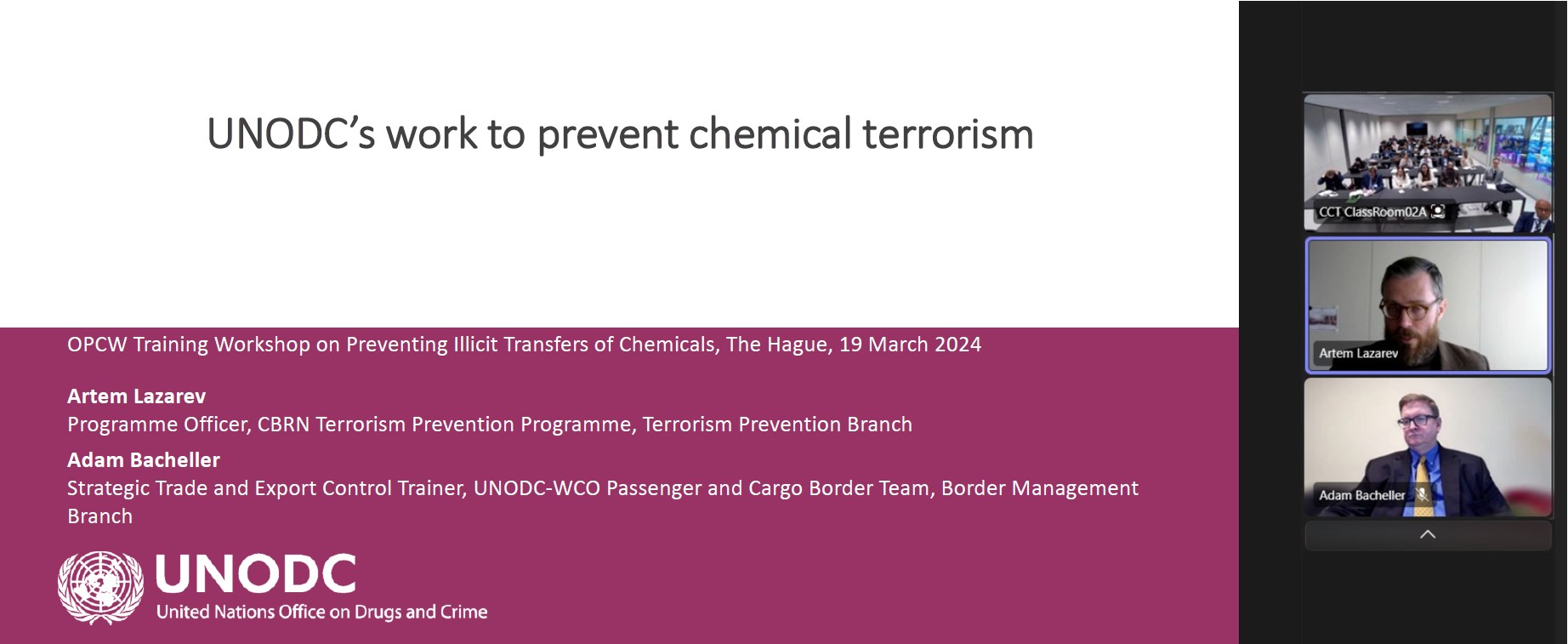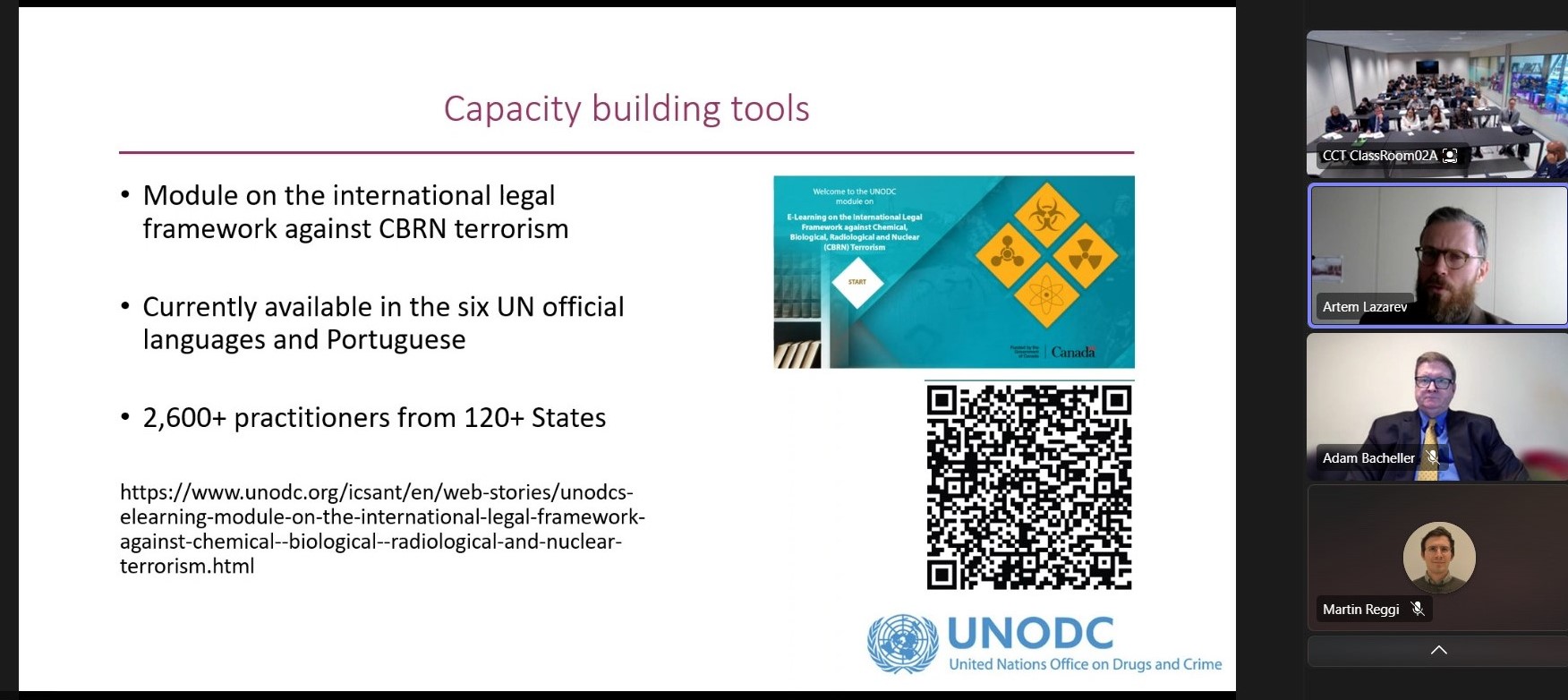Illicit transfer of chemicals by terrorists and criminal groups for further manufacturing of chemical weapons remains a very real threat to international security. The effective implementation of international legal instruments against chemical terrorism, relevant national laws and regulations by frontline customs and law enforcement officers, play a crucial role in mitigating this threat.

On 19 March 2024, the CBRN Terrorism Prevention Programme of UNODC’s Terrorism Prevention Branch – together with the Container Control Programme of UNODC’s Border Management Branch – contributed to the training workshop on preventing illicit transfers of chemicals, hosted by the Organisation for the Prohibition of Chemical Weapons (OPCW) in partnership with INTERPOL, UNODC and the World Customs Organization (WCO) in The Hague, Netherlands. Through sharing relevant knowledge and skills on tools, practices and resources with 25 frontline customs and law enforcement officials from eight South Asian and Southeast Asian countries, the workshop aimed at facilitating implementation of the Chemical Weapons Convention (CWC) at the national and regional level.
The national implementation measures required by Article VII of the CWC are also synergetic with certain provisions of four international legal instruments against chemical terrorism promoted by UNODC’s CBRN Terrorism Prevention Programme. These instruments include:
As part of its presentation during the workshop, UNODC discussed the main provisions of these instruments that cover criminalization, jurisdiction, extradition and international cooperation, as well as discussed challenges and good practices in putting the legislative framework against illicit trade in chemicals to practice. UNODC experts also shared the wide range of assistance that the Office is ready to render to States upon request, from awareness-raising to preliminary risk analysis and legislative assistance to training and simulation exercises for frontline customs and law enforcement officers.

UNODC’s eLearning module examining the international legal framework discussed above is available in all six UN official languages and can be accessed here. The module was developed with funding from the Government of Canada.